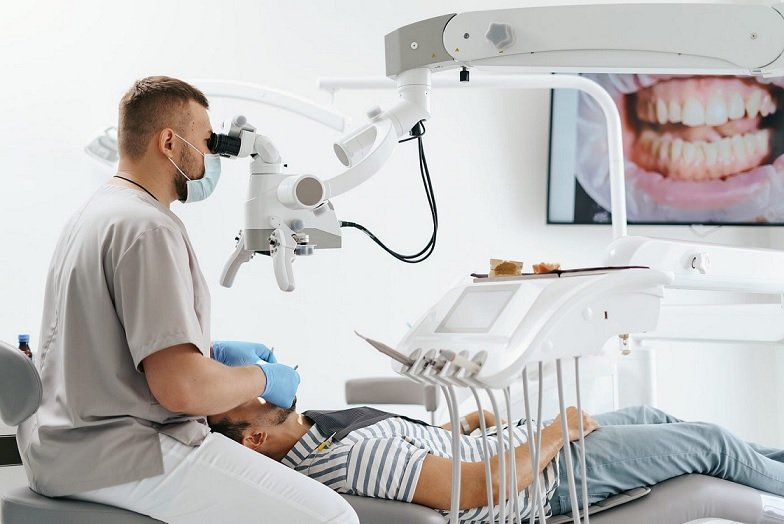How technology is transforming the patient experience and practice efficiency in dental care
The dental industry has always been at the forefront of adopting new technologies—from digital X-rays to 3D imaging and laser treatments. Yet for many practices, one crucial aspect of patient care remained stuck in the past: appointment scheduling. Today, forward-thinking dental practices are discovering that modernizing their scheduling systems can be just as transformative as any clinical innovation.
As dental practices across the country navigate increasing patient expectations and operational challenges, the shift from traditional phone-based scheduling to digital platforms represents more than just a technological upgrade—it’s a fundamental reimagining of the patient experience from the very first interaction.
The Hidden Costs of Traditional Scheduling
For decades, the standard process for booking a dental appointment has remained unchanged: patients call during office hours, wait on hold, speak with a receptionist, and hopefully find a time that works. While this system has served practices for generations, it comes with hidden costs that many dental offices are only now beginning to recognize.
Consider the typical morning at a dental practice. The phone rings constantly with patients trying to schedule appointments, confirm times, or reschedule due to conflicts. Each call takes an average of 5-7 minutes, pulling staff away from patients in the office. Studies show that dental practices receive between 20-40 scheduling-related calls per day. That’s up to 4 hours of staff time dedicated solely to phone scheduling—time that could be spent on patient care, treatment planning, or practice growth initiatives.
The inefficiencies don’t stop there. Phone tag becomes inevitable when patients can only call during work hours—which often overlap with your office hours. Voicemails pile up, callbacks get delayed, and frustrated patients may simply choose another practice that’s easier to reach. In fact, research indicates that 40% of patients prefer to book appointments outside of traditional business hours, when phone scheduling simply isn’t an option.
The Digital Transformation of Dental Scheduling
Enter the era of digital scheduling. Platforms like Vosita are revolutionizing how dental practices manage appointments by offering online appointment scheduling that works 24/7. This isn’t just about keeping up with technology—it’s about fundamentally improving both patient satisfaction and practice efficiency.
Digital scheduling platforms allow patients to view real-time availability, select their preferred provider, and book appointments instantly—whether it’s 2 PM or 2 AM. For dental practices, this means no more playing phone tag, no more double-bookings due to miscommunication, and no more lost opportunities when potential patients can’t get through on the phone.
The benefits extend beyond mere convenience. Digital scheduling systems integrate with practice management software to automatically update calendars, send appointment reminders, and even handle rescheduling requests. This automation reduces no-shows by up to 30%, as patients receive timely reminders via text or email and can easily reschedule if conflicts arise.
Building Trust Through Transparency
One unique advantage of digital scheduling platforms is the transparency they provide. Patients can read reviews from other patients, view provider profiles, and even see what insurance plans are accepted—all before booking their appointment. This transparency builds trust before the patient ever steps foot in your office.
For dental practices, this means attracting patients who are already informed and comfortable with their choice. When patients can see that your practice accepts their insurance, read positive reviews about gentle care for anxious patients, and book with a specific hygienist they prefer, they arrive more confident and ready for treatment.
Improving Practice Operations
The operational benefits of digital scheduling extend throughout the entire practice. With fewer phone calls to manage, front desk staff can focus on providing exceptional in-person service to patients in the office. This improved attention leads to better patient experiences, more efficient check-ins and check-outs, and ultimately, higher patient satisfaction scores.
Digital scheduling also provides valuable data insights. Practices can track booking patterns, identify peak demand times, and optimize their schedules accordingly. If data shows that working parents consistently book Saturday appointments weeks in advance, you might consider extending Saturday hours. If certain procedures are frequently requested, you can ensure appropriate time blocks are available.
The financial impact is significant as well. By reducing the administrative burden of phone scheduling, practices can operate more efficiently without adding staff. The reduction in no-shows alone can save thousands of dollars per month in lost revenue. Additionally, by making it easier for patients to book appointments, practices often see an increase in patient volume, particularly for routine cleanings and preventive care.
Addressing Common Concerns
Some dental practices worry that digital scheduling might feel impersonal or that older patients won’t adapt to the technology. However, experience shows these concerns are largely unfounded. Digital scheduling doesn’t replace human interaction—it enhances it by freeing staff to provide better in-person care. And surprisingly, patients across all age groups appreciate the convenience of online booking, with studies showing that even 65% of patients over 65 prefer digital scheduling options when available.
Security and HIPAA compliance are also top priorities for any digital health solution. Reputable scheduling platforms maintain strict security standards, encrypting all patient data and ensuring full HIPAA compliance. In many cases, digital systems are actually more secure than paper appointment books or basic computer calendars.
The Competitive Advantage
In today’s competitive dental market, practices that offer convenient digital scheduling have a distinct advantage. Younger patients, in particular, expect the same level of digital convenience from their healthcare providers that they get from other service industries. A practice without online scheduling may appear outdated or difficult to access, pushing potential patients toward more tech-savvy competitors.
Moreover, digital scheduling platforms often include features that actively help practices grow. Integration with Google and social media platforms means that when someone searches for “dentist near me,” they can book directly from search results. This seamless path from search to scheduling captures patients at the moment they’re ready to commit to care.
Making the Transition
The good news for dental practices is that implementing digital scheduling doesn’t require a complete overhaul of existing systems. Modern platforms are designed to integrate smoothly with current practice management software, and the transition can be gradual. Many practices start by offering online scheduling for new patients or certain types of appointments, then expand as they become comfortable with the system.
Staff training is minimal, as these platforms are designed to be intuitive. Most team members find that digital scheduling actually makes their jobs easier, reducing stress and allowing them to provide better patient care.
Looking Forward
As dental practices continue to evolve, those that embrace digital scheduling position themselves for success in an increasingly connected world. The benefits—from improved patient satisfaction to increased operational efficiency—make digital scheduling not just a nice-to-have, but an essential tool for modern dental practice management.
The question isn’t whether to adopt digital scheduling, but how quickly you can implement it to start reaping the benefits. For practices committed to providing exceptional patient care while maintaining efficient operations, digital scheduling represents an investment that pays dividends in both patient satisfaction and practice growth.
By embracing digital scheduling solutions, dental practices can focus on what they do best—providing excellent dental care—while technology handles the logistics of getting patients through the door.



